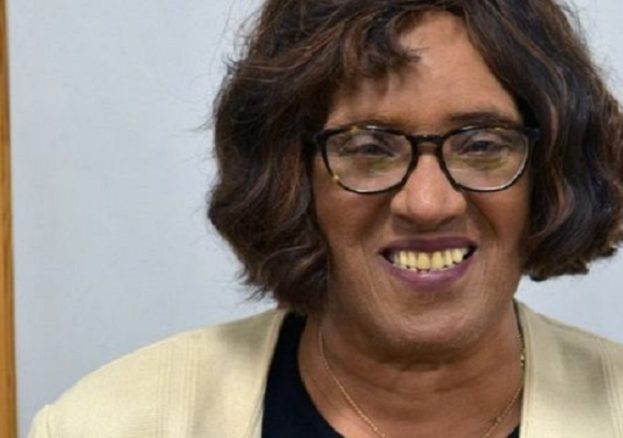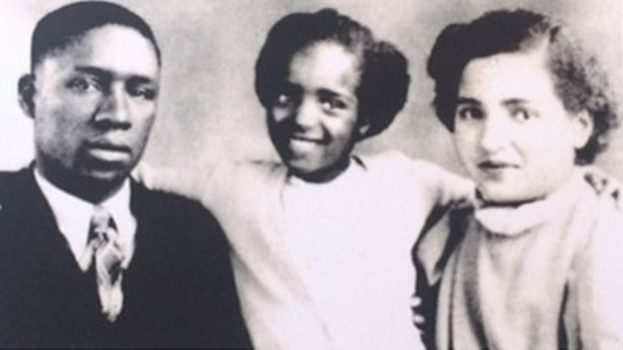
Mrs Campbell proved wrong those who told her as a pupil her dream job was “insurmountable” in post-war Britain.
The school she led became a template around the UK for good multicultural education and Nelson Mandela sought her out on his only visit to Wales.
She was chosen by the thousands of people who voted in the BBC Wales poll.
The statue will be placed in the plaza of Central Square, by the BBC Wales’ new headquarters, and her face was projected on to the side of the building on Friday to mark the announcement.
Helen Molyneux, a member of the Monumental Welsh Women group who led the campaign to erect the statue, said: ‘‘We are delighted that so many people took part in the vote and that it has generated so much interest.
“We will now get on with commissioning the artist who will design and create the statute and look forward to seeing it unveiled in 2020.
Betty Campbell’s face was projected on the side of BBC Wales’ new building as the winner was announced
“We will also be challenging other towns and cities in Wales to follow Cardiff’s example and honour their hidden heroines.”
BBC Wales Director Rhodri Talfan Davies added: “We’re delighted by the terrific response to the Hidden Heroines series.
“The whole project has been a unique chance to celebrate five extraordinary Welsh lives – and their rich contribution to the world.”
The four other women shortlisted as great examples of the contribution made by Welsh women were Elizabeth Andrews, Sarah Jane Rees (Cranogwen), Elaine Morgan and Margaret Haig Thomas (Lady Rhondda).
But it was the story of Mrs Campbell which won the vote.
Rachel Elizabeth Campbell – known as Betty – was born in 1934 in Cardiff’s docklands area to a Jamaican father and Welsh Barbadian mother.

After growing up in Tiger Bay, Mrs Campbell worked as a teacher in multi-racial areas of the city, first in Llanrumney and then at her local Mount Stuart Primary.
She later became headteacher at Mount Stuart, despite being left in tears as a pupil after being told her dream would not happen.
Throughout her life, she championed her nation’s multicultural heritage.
She was also a member of the preparation committee for the opening of the National Assembly in 1998 and a former councillor for the Butetown ward.
She was on the race relations board between 1972 and 1976, a governor of BBC Wales from 1980 to 1984, a member of the Home Office’s race advisory committee and served in many education roles.
Mrs Campbell died in 2017, aged 82.
